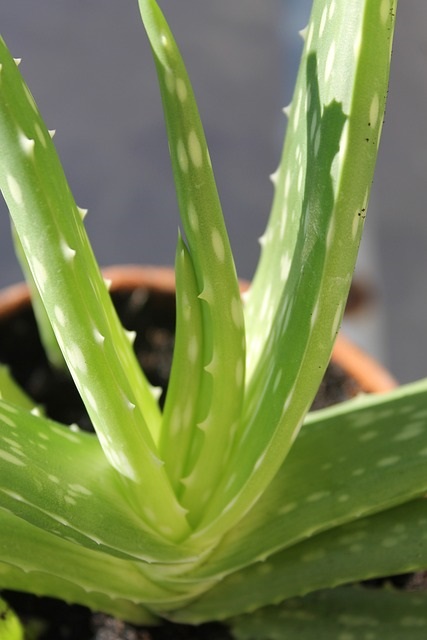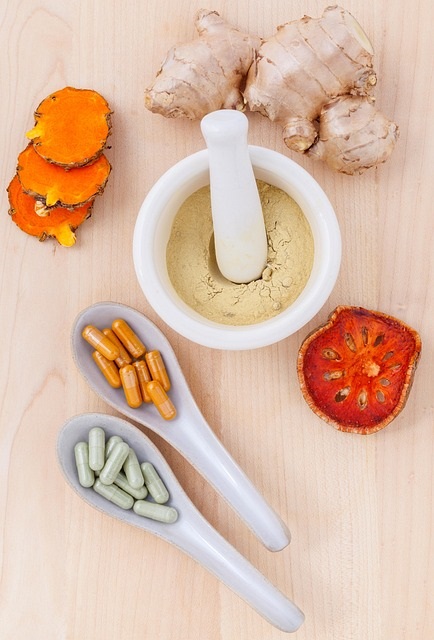Natural Medicine Support Lifelong Health
Today we will learn about the natural Medicine we need to take to be healthy and some therapies that make our daily lives beautiful, the therapies that make a person’s organs beautiful and constructive, and also help a person to live a real life.
through nature’s medicine. However, there has been a growing interest in therapy and natural medicine, which offer alternative and complementary approaches to preserving health. This essay will explore the various types of therapy and natural medicine that can help keep the body healthy, the benefits they offer, and how they can be integrated with traditional healthcare practices. The importance of natural medicine has been increasing day by day since ancient times.
The Role of Therapy in Maintaining Health

Therapy, whether physical, emotional, or psychological, plays a crucial role in maintaining overall well-being. It is important to understand that therapy is not only about curing diseases but also about preventing them, improving quality of life, and enhancing the body’s natural healing capabilities. The following types of therapy are commonly used to promote health and prevent willness:
1. Physical Therapy (Physiotherapy)
Physical therapy (PT) is a treatment approach focused on improving movement, strength, and function through exercises, manual techniques, and education. It is especially beneficial for individuals recovering from surgery, injury, or chronic conditions such as arthritis, back pain, or neurological disorders. By targeting the musculoskeletal system, physical therapy helps individuals regain mobility, reduce pain, and enhance their quality of life.
For example, physical therapists use exercises to strengthen muscles, improve flexibility, and restore balance. They also employ techniques like heat or cold therapy, ultrasound, and electrical stimulation to reduce inflammation and promote healing. Regular physical therapy can also serve as a preventive measure, helping to avoid long-term issues such as chronic pain or joint degeneration.
2. Massage Therapy
Massage therapy involves the manipulation of soft tissues, such as muscles, tendons, and ligaments, to relieve tension, improve circulation, and promote relaxation. It has been used for centuries as a natural healing method to ease pain and promote general health. Massage therapy can be highly effective for reducing stress, alleviating muscle soreness, and improving flexibility.
Studies have shown that regular massage can reduce anxiety, lower blood pressure, and promote better sleep, making it an excellent complementary therapy for maintaining both physical and emotional well-being. Different types of massage techniques, such as Swedish massage, deep tissue massage, and sports massage, can be tailored to individual needs, ensuring that the therapy provides the most benefit.
3. Psychotherapy and Counseling
Mental health is as important as physical health when it comes to maintaining overall well-being. Psychotherapy, also known as talk therapy, is a treatment method that addresses emotional and psychological issues. Counseling and psychotherapy can help individuals manage stress, anxiety, depression, and trauma, all of which can have a profound impact on physical health.
Various forms of psychotherapy, such as cognitive-behavioral therapy (CBT), dialectical behavior therapy (DBT), and mindfulness-based stress reduction (MBSR), help individuals cope with emotional distress, change negative thought patterns, and develop healthier coping mechanisms. Therapy also aids in building self-awareness and emotional resilience, which can improve decision-making, relationships, and overall life satisfaction.
4. Chiropractic Care
The diagnosis and treatment of musculoskeletal conditions, especially those affecting the spine, are the main goals of chiropractic care.Chiropractors use manual manipulation, or spinal adjustments, to correct misalignments in the spine and improve nerve function. This therapy can help alleviate pain, improve mobility, and restore proper body alignment.
Chiropractic care is especially effective for conditions such as back pain, neck pain, headaches, and sciatica. It is considered a natural therapy because it avoids the use of medications and invasive procedures, relying instead on the body’s ability to heal itself. Many individuals who seek chiropractic care experience long-term relief from chronic pain and improved overall well-being.
Natural Medicine for Health Maintenance
natures medicine dispensary,which encompasses a variety of treatments derived from nature, has gained widespread popularity for its focus on holistic healing.nature’s medicine az aims to treat the root cause of health issues rather than just the symptoms. It often involves using herbs, supplements, diet, and lifestyle changes to support the body’s natural healing processes. The following are key areas of natural medicine that promote health and well-being:
1. Herbal natural medicine

Since ancient times, there have been many beneficial nature’s medicine Wareham made from tree roots, one of which is the root of the Shimul tree, which increases physical strength and beautifies the body. It involves using plants and plant-based substances to prevent or treat illness. Many herbs have therapeutic properties that can help support the immune system, reduce inflammation, and promote healing.
For example, herbs like echinacea and elderberry are commonly used to boost the immune system and prevent colds and infections. Turmeric, with its active compound curcumin, is known for its anti-inflammatory properties and can help alleviate pain and inflammation associated with conditions like arthritis. Other herbs such as ginseng, ashwagandha, and valerian root are used to reduce stress, improve energy levels, and promote restful sleep.
It is important to consult with a qualified healthcare provider before using herbal medicine, as some herbs can interact with medications or have side effects.
2. Nutritional Therapy
Our diet should include foods rich in protein, iodine, and calcium, which keep the body healthy and nutritious.A balanced diet that includes a variety of nutrient-dense foods is essential for the proper functioning of the body. Nutritional therapy focuses on using diet and supplementation to address specific health issues and maintain overall wellness.
For instance, a diet rich in fruits, vegetables, whole grains, lean proteins, and healthy fats provides the body with essential vitamins, minerals, and antioxidants that support immune function, energy production, and cell repair. Nutritional therapy can also involve the use of supplements such as omega-3 fatty acids, vitamin D, magnesium, and probiotics to address deficiencies or support specific health concerns.
In addition to conventional foods, superfoods like spirulina, chlorella, and acai berries offer additional health benefits due to their high concentrations of vitamins, antioxidants, and phytonutrients. Nutritional therapy can help individuals optimize their health and reduce the risk of chronic diseases such as heart disease, diabetes, and obesity.
3. Aromatherapy
The application of essential oils derived from plants to enhance mental and physical health is known as aromatherapy. To achieve therapeutic benefits, these oils are frequently used topically, inhaled, or diffused.Aromatherapy can help reduce stress, enhance mood, improve sleep, and even alleviate symptoms of certain medical conditions.
For example, lavender oil is known for its calming and soothing effects, making it ideal for relieving anxiety and promoting sleep. Peppermint oil is commonly used to reduce headaches and improve digestion, while eucalyptus oil can help with respiratory issues such as congestion and sinusitis. Aromatherapy can be used as a complementary therapy alongside other treatments to enhance overall health and wellness.
4. Acupuncture
Thin needles are inserted into particular body spots during the age-old practice of acupuncture in order to balance the body’s energy and encourage healing.It is commonly used in traditional Chinese medicine (TCM) and is believed to stimulate the body’s natural healing processes by restoring the flow of energy (or “Qi”) throughout the body.
Acupuncture has been shown to be effective in treating a wide range of conditions, including chronic pain, digestive issues, insomnia, and stress. It is a non-invasive therapy that can be used to complement conventional medical treatments and help maintain overall health. Many individuals report feeling more relaxed and balanced after acupuncture sessions, making it an excellent addition to any wellness regimen.
5. Homeopathy
Homeopathy is a form of natural medicine that involves treating illnesses with highly diluted substances that, in larger doses, would cause symptoms similar to those of the illness being treated. Homeopathic remedies are based on the principle of “like cures like” and are individualized according to a person’s specific symptoms and constitution.
While scientific evidence on the effectiveness of homeopathy is mixed, many people find relief from conditions such as allergies, digestive issues, and emotional stress through homeopathic treatments. Homeopathy is considered a gentle and holistic approach to healing, focusing on the body’s ability to restore balance and health naturally.

Integrating Therapy and Natural Medicine with Conventional Medicine
While therapy and natural medicine offer many benefits, it is important to recognize that they should not replace conventional medical treatments but rather complement them. Integrating therapy and natural medicine with conventional healthcare practices can provide a more comprehensive approach to maintaining health.Consuming natural medicine can help you get rid of many complex diseases.
For example, physical therapy can be used alongside medications or surgical interventions to aid in recovery and improve outcomes. Similarly, herbal medicine or nutritional supplements can support the body during conventional cancer treatments, such as chemotherapy, by helping to manage side effects and boost immune function.
Before combining therapies, it is essential to consult with a healthcare provider to ensure that there are no contraindications or potential interactions between treatments. Working with a team of healthcare professionals, including doctors, therapists, and natural medicine practitioners, can help ensure a holistic approach to health.
Conclusion
Maintaining good health requires a multifaceted approach that includes physical, emotional, and mental well-being. Therapy and natural medicine offer valuable tools for promoting health, preventing illness, and supporting the body’s innate healing capabilities. Whether through physical therapy, massage, psychotherapy, or the use of herbs and supplements, individuals can take proactive steps to care for their bodies and minds.
Integrating these therapies with conventional medical treatments can lead to a more balanced and effective approach to health maintenance. By embracing both traditional and natural Medicine healing practices, individuals can optimize their health, enhance their quality of life, and achieve long-term wellness natural medicine is very important, it is necessary to use natural medicine in our daily life and it plays an important role.
FAQ
What is the best natural healer?
Here’s a roundup of the most popular natural remedies you might try for common ailments.
Calendula. In winter, dry skin can be a chronic concern. …
Chamomile. …
Echinacea. …
Elderberry Syrup. …
Ginger. …
Honey. …
Lavender. …
Magnesium.
Is tea a form of natural medicine?
Absolutely! Herbal teas, like peppermint and lavender, have natural healing properties that can relax your body and mind.
What’s the deal with essential oils?
Essential oils are like little bottles of nature’s magic! They can help boost your mood, calm your nerves, and even improve skin health.
